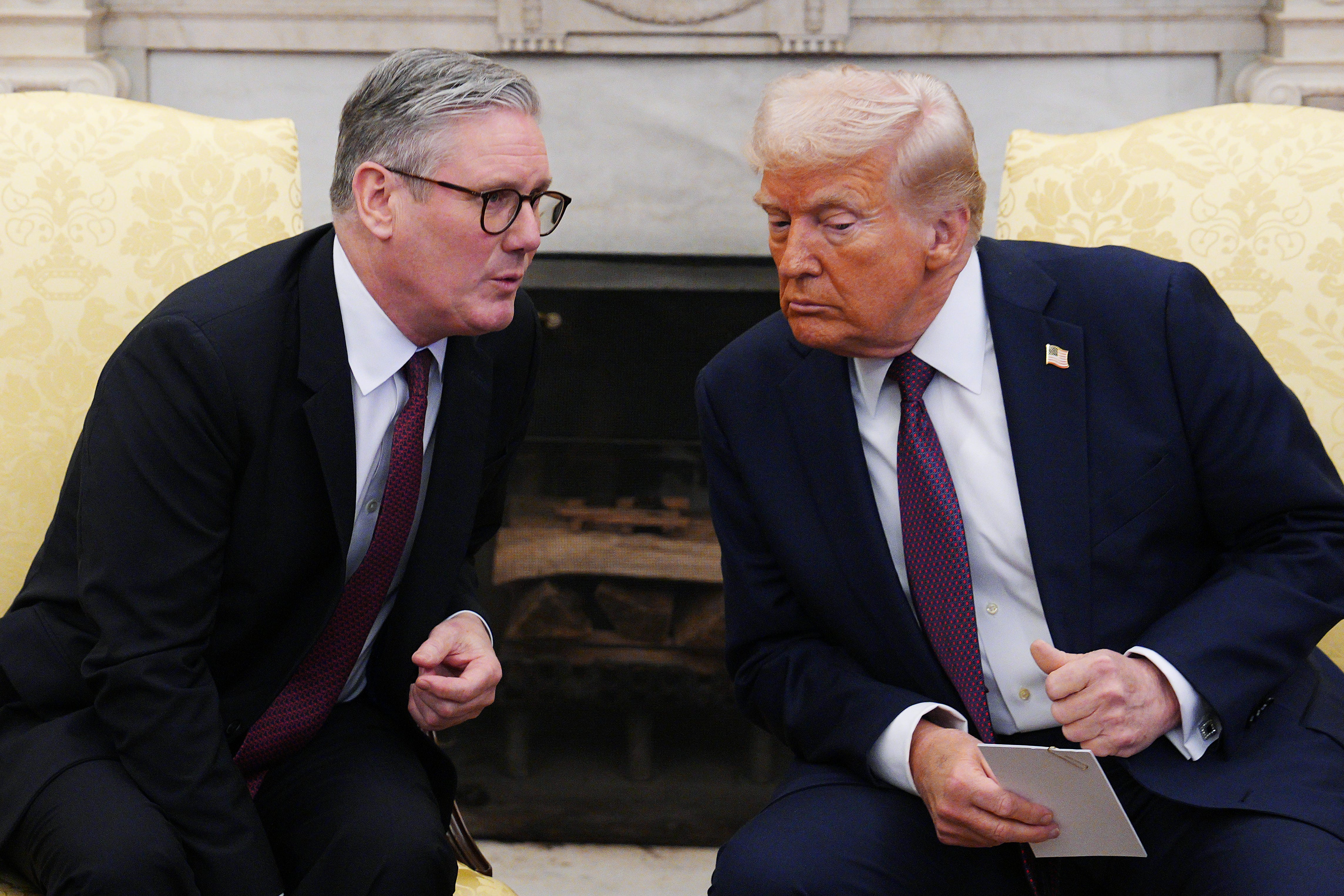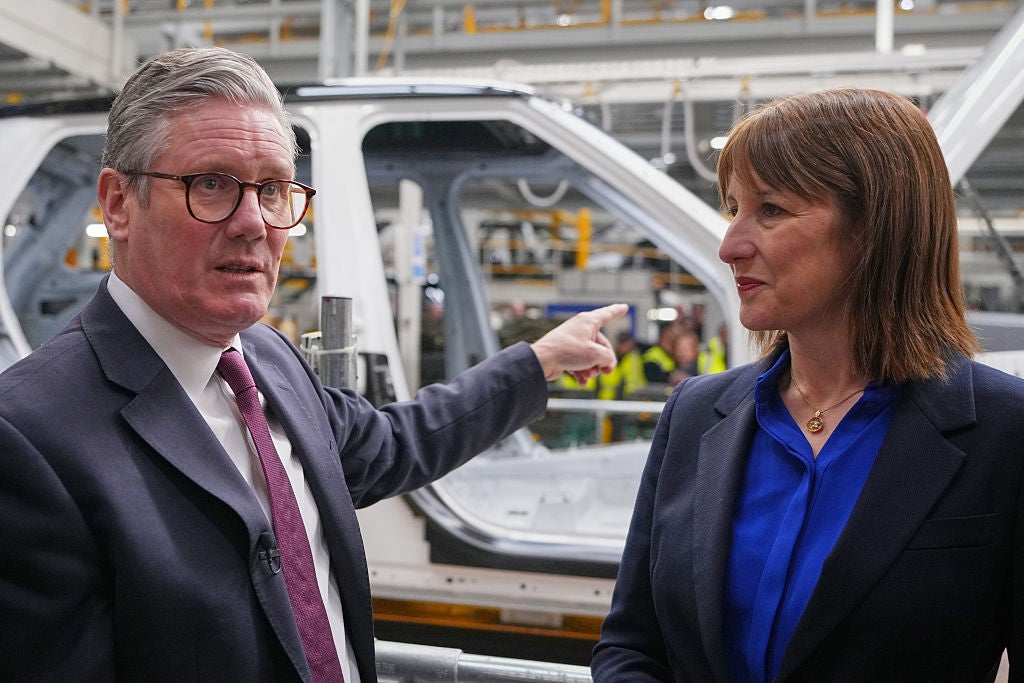ARTICLE AD BOX
Donald Trump has unveiled a "historic agreement" with the UK, the culmination of Sir Keir Starmer’s months-long charm offensive towards the US president.
A month after his so-called Liberation Day tariffs began to bite, Britain has now achieved a series of significant carve outs from sweeping tariffs on UK carmakers, steelworks and farmers.
The deal is a major boost for the prime minister, coming hot on the heels of a trade agreement between the UK and India this week.

Donald Trump said the agreement with the UK is a “great deal for both countries”, while Sir Keir said “this is a really fantastic, historic day” as he spoke to the US President about the deal on the phone. Here The Independent looks at what exactly has been announced.
What carve-outs has the UK secured?
The deal, which the UK government has said will save “thousands of jobs”, will see car export tariffs slashed from 27.5 per cent to 10 per cent, for a quota of 100,000 UK cars. This, the government said, is almost the total the UK exported last year.
Mr Trump’s 25 per cent tariffs on steel will be axed entirely, while a levy on ethanol – which is used to produce beer – coming into the UK from the US has been removed entirely.
In addition to this, the two governments have negotiated new reciprocal market access on beef, giving UK farmers a tariff free quota of 13,000 metric tonnes of meat.
Downing Street has also said that the US has agreed to give the UK “preferential treatment” in any further tariffs imposed as part of Section 232 investigations - a process where the US government determines if certain imports threaten US national security.

Are there any trade-offs for the UK?
There are concerns that the new reciprocal market access on beef could lead to a decline in food standards. However, the UK government insisted that there will be “no weakening of UK food standards on imports”, amid concerns a deal could pave the way for the import of hormone-treated beef from the US.
Donald Trump also played down concerns that it could open up UK markets to chlorine washed chicken, saying the UK will “take what they want” when it comes to US beef and chicken imports, rather than being forced to accept lower standards.
US agriculture secretary Brooke Rollins added: “Specific to the beef, this is going to exponentially increase our beef exports. And to be very clear, American beef is the safest, the best quality, and the crown jewel of American agriculture for the world.”
Alongside this, there were also concerns that the US was trying to win concessions on Britain’s digital services tax, paid by overseas search engines and social media sites on revenues from the UK. But today’s deal saw the tax left unchanged. A change to the tax would have been a boost to major American firms such as Amazon, Facebook owner Meta and Google owner Alphabet.
Instead the two nations have agreed to work on a digital trade deal that will strip back paperwork for British firms trying to export to the US - something the government said would open the UK up to a “huge market that will put rocket boosters on the UK economy”.
Were there any red lines for the UK government?
A consistent red line in negotiations has been food standards, amid fears a trade deal could open Britain’s doors to hormone-injected beef and chlorinated chicken.
Business secretary Jonathan Reynolds and chancellor Rachel Reeves have both ruled out lowering Britain's food standards to get a deal over the line, in a boost to struggling farmers.
What hasn’t been announced?
The government has failed to secure carve outs for tariffs on pharmaceuticals and the remaining 10 per cent reciprocal tariffs imposed on Britain. The government said “work will continue” on those.
There have also been no concessions secured for the film and TV industry, after Mr Trump threatened to apply a 100 per cent levy on films made outside America, which the PM has been warned would devastate film and TV production in the UK.
Officials have also been desperately trying to exempt British firms from a fresh threatened 25 per cent tariff on pharmaceuticals produced abroad.
The measure would have a huge impact on UK giants GlaxoSmithKline and AstraZeneca, and negotiators are racing to find a carve out.









 English (US) ·
English (US) ·